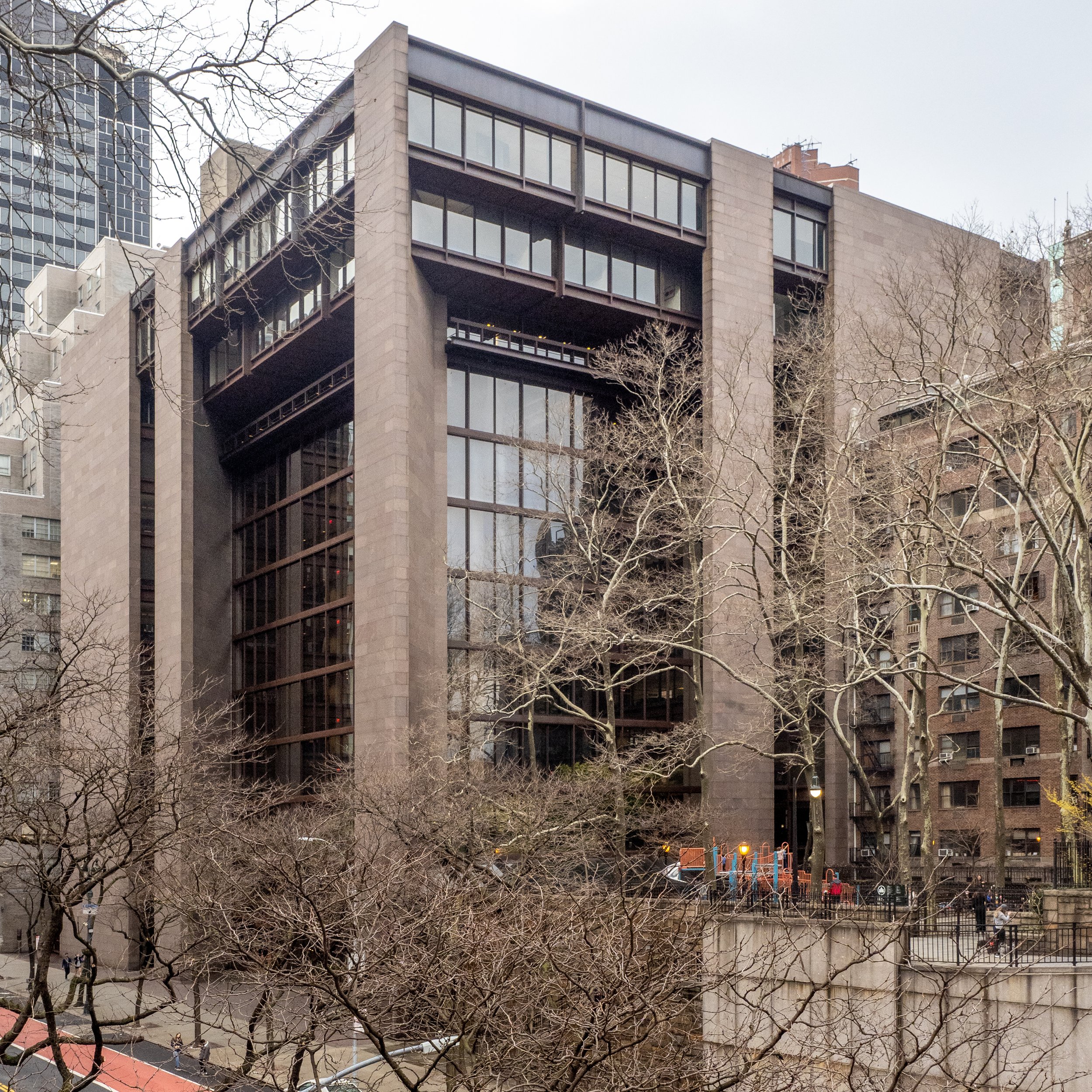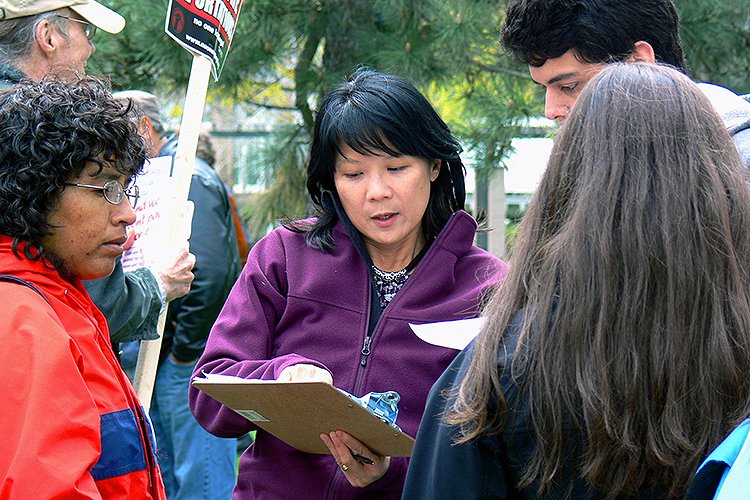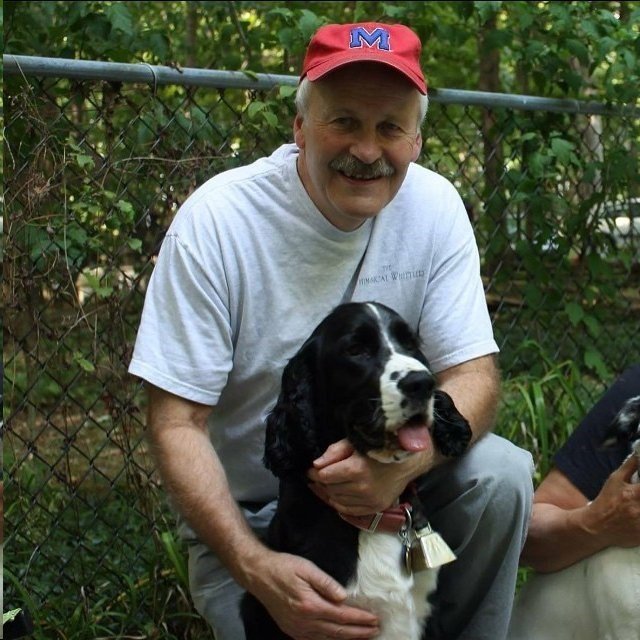
Philanthropy and the Testing of Democracy in America
Society accrues an opportunity cost when philanthropy focuses primarily on influencing politics and policy-making. It beggars investment in the ideas, leaders, organizations, and civic infrastructure that only pay off over the longer term, and that we need to sustain a pluralistic democracy over time.

What We Owe The Other Side—And Our Own—in Civil Society
Philosopher Robert Talisse contends that the best way to advance our political views is by remaining much more open than we are naturally inclined to be to reasonable criticism from those who disagree with us. This counterintuitive advice can help all of us holding down the office of citizen as we head into another election season. It is also timely and relevant for nonprofits seeking to make the world a better place.

Eboo Patel Reflects on Twenty Years at Interfaith America
Eboo Patel, Founder and President of Interfaith America, is a keen observer of the connection between the health of civil society and democracy in America—and the role that faith-based organizations play in sustaining both. I recently caught up with Eboo to learn more about his organization’s work and how he has sought to lead and learn from it over the last two decades.

A Personal Note: Introducing Lyceum Labs
As some readers of The Art of Association know, last spring I wrapped up my fixed term appointment as director of the U.S. Democracy Program at the Hewlett Foundation. For the past six months, I have been working to start up a new nonprofit, Lyceum Labs, where I am serving as executive director. I thought I should fill you in on my new venture.

Do We Need to Party Better to Fix U.S. Democracy?
In our current polarized era, it may be a stretch to see political parties playing an edifying role in U.S. democracy and civil society. But could we reimagine and revitalize our parties so they could once again do so? Indeed, might the health of U.S. democracy depend on it?

Martin Luther King Jr. and the American Political Tradition
At the outset of Martin Luther King Jr.’s “I Have a Dream” speech, he performs a remarkable act of statesmanship, positioning himself squarely within the American political tradition while delivering a compelling critique of it.

The Best-Kept Secret of the Secret Congress
For the past two congresses, a dedicated group of House lawmakers has worked in innovative ways not to make public policy but rather to strengthen the institution that makes it – the People’s House. We all stand to benefit from their labor.

A Way Out of the History Wars
A new report from More in Common finds that, “for the vast majority of Americans, the differences in how we perceive and want our national story taught are far narrower than a few high-profile polemics might suggest.”

We Need to Start Imagining Better Futures for American Democracy
Civil society actors focused on U.S. democracy have in recent years primarily sought to defend it against near-term threats. Suzette Brooks Masters contends we need to start imagining what democracy in America could and should look like over the long term.

Veterans Day Reflections
The following post may seem a bit personal and off-topic after an important week for our democracy. But on this Veterans Day, I am feeling gratitude for the veterans in my life and the examples of their citizenship. If you’ll indulge me, I'd like to share some reflections about them.

Madison’s Metronome and the Frustrations of Fleeting Majorities
American politics remains a recurring contest rather than an apocalyptic showdown. This is due to a complex set of electoral mechanisms Greg Weiner calls “Madison’s Metronome.” A proper understanding of its workings can help partisans of all stripes see that things are never as bad, nor as good, as they might seem after any given election. Reckoning with its tempo would also benefit advocates and activists in civil society—and the funders who support them.

“Democracy Is So Much Larger Than Politics”
In this interview, Kristen Cambell, CEO of Philanthropy for Active Civic Engagement, shares how her organization is working to shore up “civil society—the parts of democracy, leadership, and active citizenship that may not involve government (or even institutions), but compel us toward a full spirit and vision of what it means to live in a self-governing society. Systems, processes, and institutions will only ever be as strong as the civic values, democratic culture, and social norms that surround them.”

Nonprofit Physician, Heal Thyself!
Over two decades as a consultant, board member, and funder in the social sector, I have come to hold several assumptions about successful nonprofits. As I prepare to launch a new charitable venture, I find myself revisiting this conventional wisdom.

Hope Forward: A Plan to Reimagine Higher Ed
Hope College, a liberal arts school in Holland, Michigan, seeks to reimagine the business model for higher education. Its innovative plan, Hope Forward, will transform the relationships between and among the institution, its students, and alumni.

Moderation in Defense of Democracy Is A Virtue
Presidents are at their best and most persuasive when they are showing, not telling us how to uphold our democracy.

Can Depolarization Be Scaled?
Many civil society groups are responding to our fraught times by building bridges between citizens and groups that see the world differently and enabling them to engage in constructive dialogue. One of the most promising is the Constructive Dialogue Institute. I recently interviewed the Institute’s Executive Director, Caroline Mehl, about the work she is leading.

5 Principles for Reflective Practice in Philanthropy
Reflective practice in philanthropy calls for empirical humility and curiosity vis-a-vis the complex system(s) you seek to change; a commitment to learning; an openness to being surprised; and a belief things can always be improved, not only out in the world and your strategy for changing it, but also in your own worldviews, capacities, and mindsets.

The Changing Climate on Campus – and the Stakes for Democracy
What will it take for universities to uphold freedom of expression and viewpoint diversity? Those of us who believe that the purpose of the university is to pursue truth must engage and persuade those who may not share our convictions.

Needed: A Government Reform League for the 21st Century
Philanthropic funders are skimping on investing in the capacity and performance of our faltering governing institutions, even as they attempt to push more and higher-octane policy inputs through them. This is a recipe for failure.

What is Pluralism?
For Americans to live peaceably together in the face of our myriad differences, we need to get better at pluralism. But what exactly is pluralism — and why and how do we need to practice it?